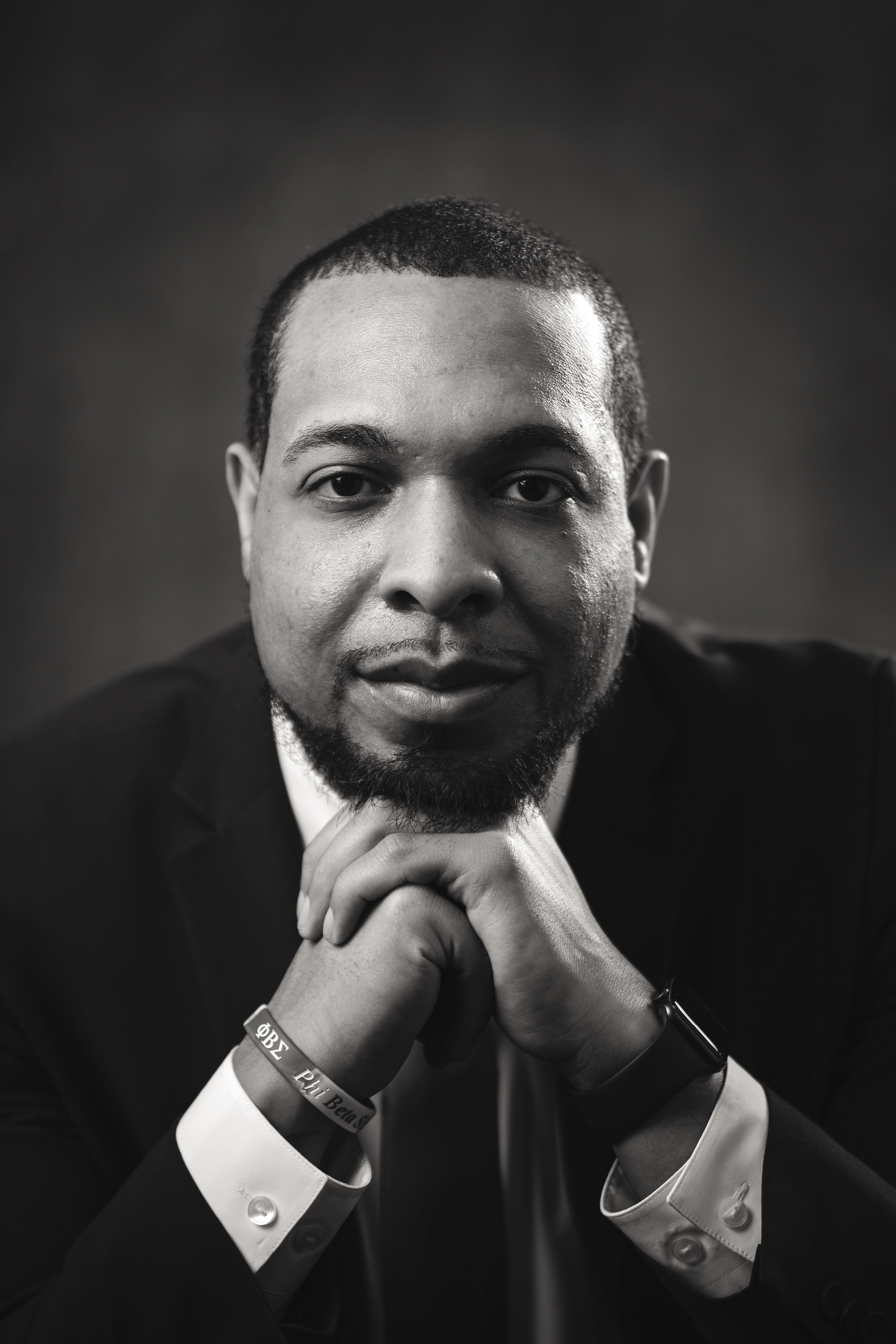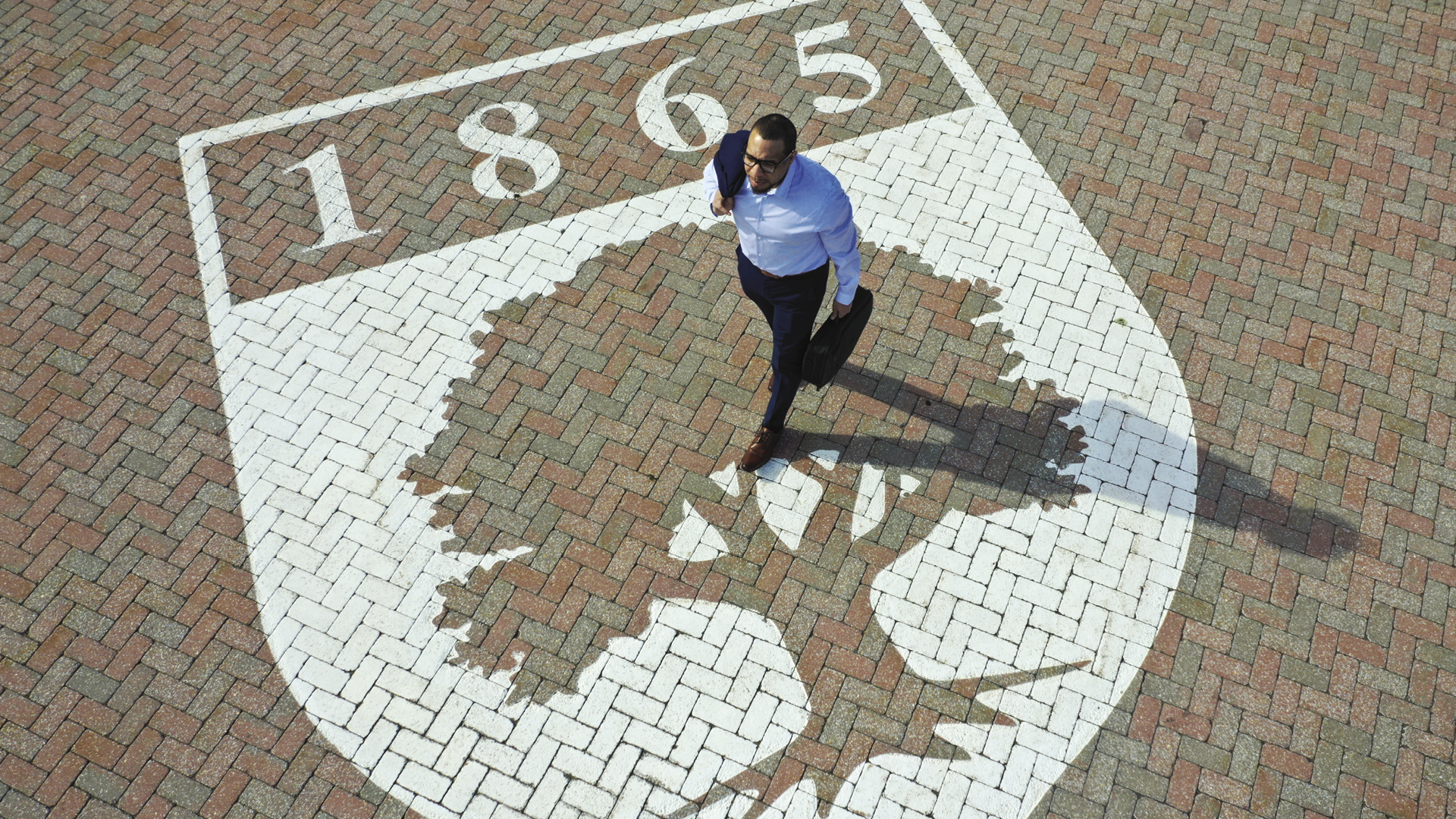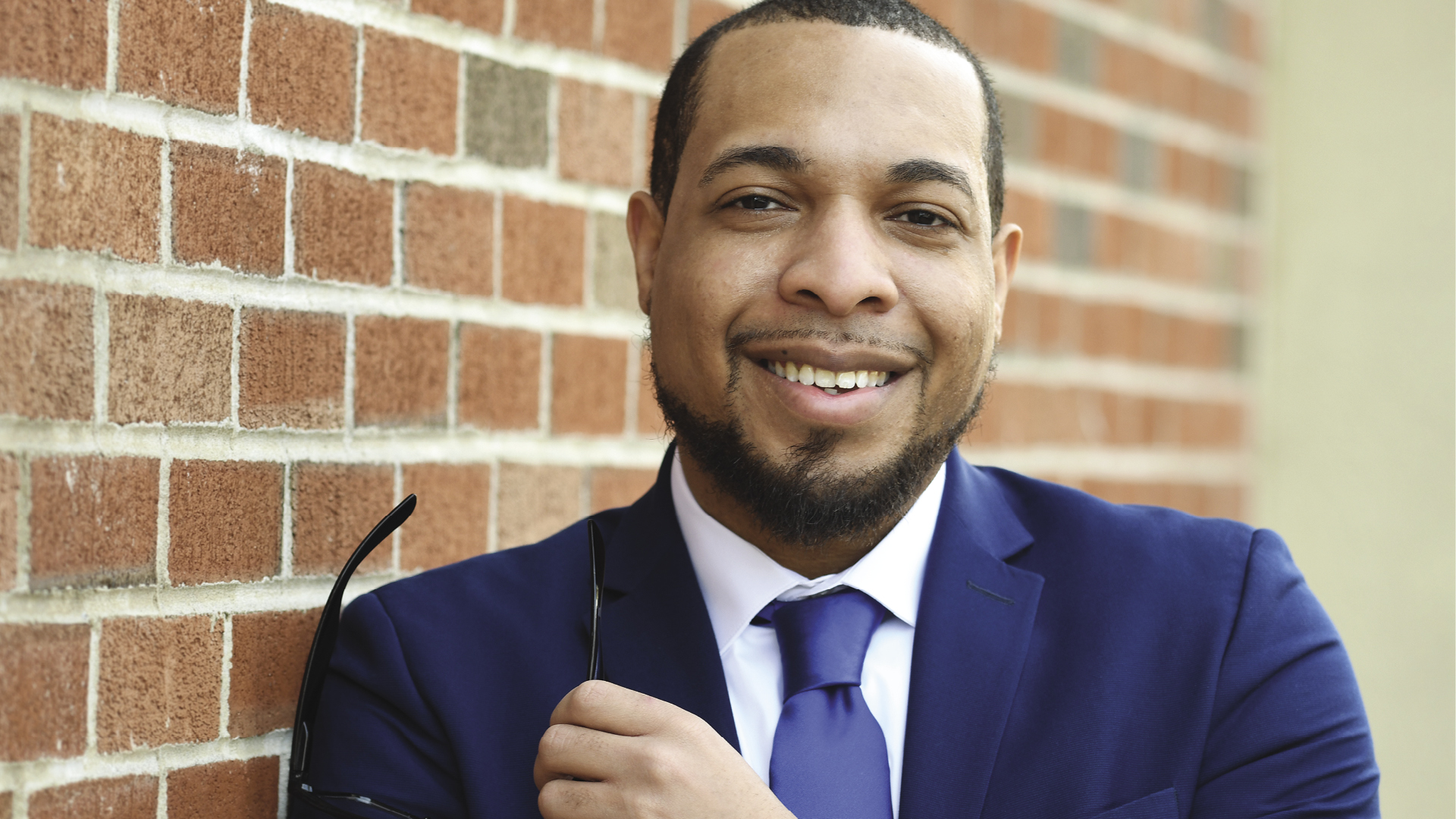by Adam Grybowski
From a distance, it would have been hard to distinguish what made Kristian Gardner ’20 different from his peers at Rider.
It was the spring of 2017, and like many if not most college students, he was scraping by financially but blossoming intellectually. His grades were good, as were his post-graduation job prospects. Gardner had chosen his field of study, accounting, more for practical reasons than passion. He felt confident it would lead to a stable career, and he had already secured internships that were greasing the wheels for a successful launch into the job market.
He was well-liked, creating friendships as easily with his fraternity brothers as with the administrators and faculty he had gotten to know since transferring from Mercer County Community College in 2015.
In many ways, Gardner was cruising, content to make the temporary sacrifices almost all college students make so he could later leverage his education into a richer, more fulfilling life.
Then, one day, he was laid off from his job at a call center. Though the news was unwelcome, it was likely only a temporary setback. Gardner had held many jobs since striking out on his own at 18, when he left his birthplace of New York City and moved to New Jersey. No matter what life threw at him, he had always made it work and this time, he felt like he could do it again.
But then more bad news arrived. The lease on his off-campus apartment was not going to be renewed, and Gardner and his five roommates had to find other places to live.
These twin events, taken in tandem, exposed a dangerous vulnerability. Like many college students (and Americans in general), Gardner had little savings to count on. He didn’t own a car. He had a complicated relationship with his family, made more complicated by the death of his mother when he was in 10th grade, and he couldn’t fall back on family as others could, including some of his roommates, who moved back in with their parents.
To continue making headway toward his bachelor’s degree, Gardner needed a job. To land a job, he needed to prove he had a place to live. To obtain a new lease, he needed a security deposit. To save up for a security deposit, he needed a job.
This perverse cycle was the beginning of a spiral into darkness.
“Coming into this situation in the first place, I’m a nontraditional student,” says Gardner, 32, about pursuing an education. “I don’t have that family support others can take for granted. I’ve been trying to figure out this whole thing on my own.”
At first, Gardner couch-surfed, bouncing around amongst friends. He recalls their generosity, the loaning of blankets, the sneaking into basements to elude the awareness of landlords. But over time, as he continued having trouble securing a job, he grew embarrassed, guilty and depressed. His grades suffered. Food became scarce. He eventually stopped going to class altogether. Desperate, he left New Jersey and moved to a shelter in New York City near Penn Station and then to another in Harlem.
“It got to the point where I was genuinely ready to give up,” he says. “I nosedived.”
Such vulnerability is not atypical. Survey results released in 2019 by the Hope Center for College, Community, and Justice paint a portrait of substantial insecurity of basic needs amongst college students.
The Hope Center reported that about 41% of students at four-year institutions of higher education experienced food insecurity in the previous 30 days preceding the survey. One-quarter of survey respondents enrolled in four-year institutions said they had trouble paying their rent or mortgage, with 16% having skipped paying a full amount recently.
Rider is far from immune from these trends. In 2018, the University created The Rider Resource Pantry to give students a place where they can access food, clothing, toiletries and other essential resources they may lack.
Rayjohn Felicia ’18 was a senior accounting major when the Pantry opened. Today, he is back at Rider pursuing a master’s in business administration and also serving as a graduate assistant who oversees the Pantry’s daily operations.
“As an undergrad, I knew that there was an issue with students who don’t have as much as other students,” he says. “Some are less fortunate than others, but when I came into this position, I was opened up to how big of a problem this really is.”
According to data collected by Rider’s Office of Service and Civic Engagement, those who use the Pantry are more likely to be employed than not. Seniors access the Pantry more than any other class. Among all racial and ethnic groups, Black and white students are tied at the top of the list, each being equally as likely to use the Pantry as the other.
Felicia acknowledges the Pantry serves diverse needs among diverse people. He recalls assisting a student who was also a mother. He recalls a patron being grateful for a single box of pasta and usage of the Pantry doubling after the pandemic began, with a coinciding spike in requests for cleaning supplies.
“We see students who use the Pantry once and we also see students who develop a regular pattern of use,” he says.
The Pantry is open to all Rider students, including part-time and graduate students. It is run entirely by student volunteers and funded solely through donations. These include an annual $5,000 boost from Gourmet Dining, the University’s food service partner, and a $4,000 donation from Whole Foods Market’s Nickels for Nonprofits Program last August. A recently purchased refrigerator has allowed the Pantry to provide healthier, fresh food options.
Multiple reports have concluded that lack of basic needs can negatively impact a student’s academic efforts and performance. This was certainly the case with Gardner, whose sterling academic standing fell off a cliff after he lost his job and his apartment. For a time, as he struggled to meet his basic needs, he stopped going to his classes altogether and became completely disengaged from the University.
Rider has pursued other ways to assist students who face these circumstances. Recently, it stepped up its efforts after the coronavirus pandemic began its destructive march, particularly among the most vulnerable. Since last spring, Rider has been raising money to directly benefit students facing unexpected financial burdens so that they can fulfill immediate critical needs, such as paying medical bills not covered by insurance, covering losses of income or housing, and securing an Internet hotspot to access remote instruction.
“The pandemic has affected all of us, shaking the foundations of so many everyday things we can normally take for granted,” says Rider President Gregory G. Dell’Omo, Ph.D. “But it has been an even greater challenge for those students who carry additional burdens. Unfortunately, we expect many of those needs to persist, and we are constantly looking for ways to provide them with more support.”
Despite everyone’s best efforts, some students still slip through the cracks. One of them was Kristian Gardner — or almost was. After living in homeless shelters for months, Gardner had enough. “Eventually, I said to myself, this isn’t the trajectory I want to be on,” he says.
Finally, he was offered a new job, once again in telemarketing. Gardner began working full time and moved back to New Jersey. Then he got a second job working weekends, and then a third in the evenings. “The checks were nice, but I was killing myself,” he says. “And I didn’t know what my next step was.”
As he was re-establishing himself, he happened to run into Jan Friedman-Krupnick, a longtime Rider employee who is now the director of business and technology innovation.
“She was the staff member I could trust and talk to, almost like she was my psychologist,” Gardner says. “She also witnessed the complete decline in my life. During that time she fought for me. She went above and beyond and was a strong advocate.”
Now, her advocacy would resume. After catching up, she informed Gardner that an administrative position had opened up in the Division of Student Affairs. She encouraged him to apply, which he did. “Kristian blew us away in the interview,” Friedman-Krupnick says. “He has such depth of character and insight. We were thrilled to hire him.”
It was a new beginning that had such a powerful impact on Gardner’s life, he can recall the date of his first day of work at Rider as easily as a best friend’s birthday: Nov. 7, 2018. “Everything turned around for me that day,” he says.
Gardner felt he now had the stability to resume his studies and finish his degree. He decided to change majors. “I really wanted to find something that truly interested me, regardless of the job outlook and career prospects,” he says.
After landing on organizational psychology, he then set his sights on a specific career. He had become attracted to the idea of becoming an expert in his field of study. Gardner arranged a meeting with the dean of Rider’s Norm Brodsky College of Business, Dr. Eugene Kutcher. Gardner recalls, “I asked Dr. Kutcher, ‘What would it take for me to be a professor?’”
Gardner seized on Kutcher’s advice like an entrepreneur with a million-dollar idea. “I felt like this was my only chance,” he says. “My driving factor was, if something goes wrong now, I’ll never be able to realize my dream. I needed to make the most of it, make every day count.”
He vacuumed up the opportunities at Rider. He earned an Undergraduate Research Scholar Award. He joined the Ronald E. McNair Postbaccalaureate Achievement Program. He flew to conferences. He ingratiated himself with faculty and staff alike, becoming indispensable in Student Affairs and unstoppable in the classroom. His GPA not only rebounded; it exceeded his previous performance as he earned a 4.0.
Gardner knew everything he was doing was necessary so that he could have a shot at being accepted into a competitive doctoral program. “To make myself the best applicant, I knew I was going to have to dive deep,” he says. “I kept asking to do more projects. I kept overcommitting myself. I was desperate to get into these programs. I was hungry for it and that was visible. I haven’t looked back since. I just kept pushing.”
His plan worked. This semester, Gardner learned he was accepted into every doctoral program he applied to. In the fall, he will begin as a graduate student in the organizational behavior and management program at Temple University’s Fox School of Business on a presidential fellowship.
Gardner has described his story as one of redemption, which isn't quite accurate. Redemption implies the presence of sin. Circumstance may have almost diminished his light before it could burn brightest, but it wasn't because of any personal behavior nearly as grave as sin. Caught in a temporary web of misfortune, he simply couldn't rely on the privileges some students can take for granted.
Gardner is quick to cite Rider’s “supportive culture” as crucial in helping him overcome this challenge, which may be true, but he also bears significant responsibility for his achievements. “For all that Kristian has gone through,” Friedman-Krupnick says, “to land on his feet — he’s deserving of the highest accolades.”



